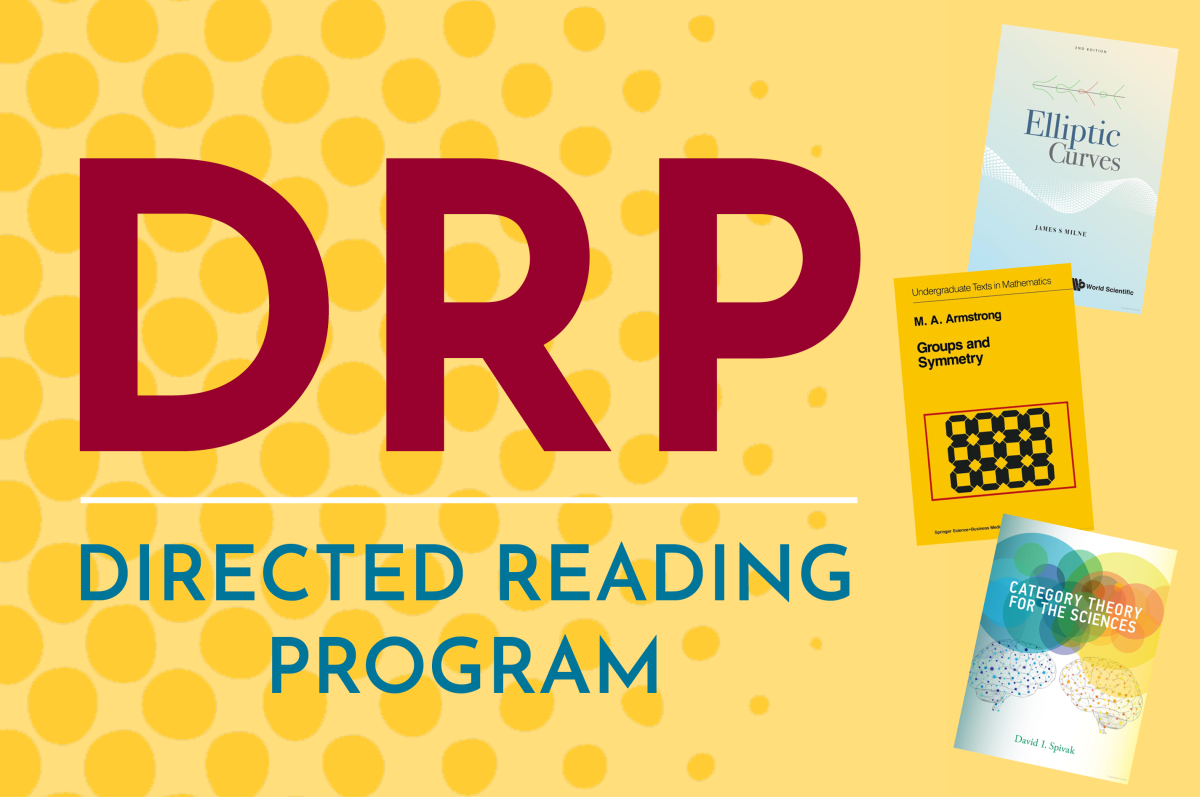Directed Reading Program fosters connection and community for mathematics students

MINNEAPOLIS / ST. PAUL (2/16/2023) – When Aaron Li came to the University of Minnesota as a Ph.D. candidate in the first year of the COVID-19 pandemic, he was searching for a way to make connections in a world that was all-digital all the time. Li discovered the Directed Reading Program (DRP), a mentorship program run by School of Mathematics graduate students, and decided to join as a mentor. The program pairs undergraduate students with graduate student mentors to complete an independent reading project and cultivate community. For Li, being a DRP mentor has been both rewarding and fun.
“I think the DRP has been great for all involved. It's very telling that we always have many graduate students volunteer to mentor with their limited time. For me personally, I've always found it to be very worth the time because it's a rare opportunity to share fun math just for the sake of it. It's helped reinvigorate me and give me a break from doing my own coursework or teaching calculus. For the undergraduates, it's a great way to learn how to read mathematics, see some material they may not have in their usual curriculum, and refine their interests within math. Several students have used the DRP as a jumping off point to work on research with professors at UMN, participate in REUs, and apply to graduate school,” says Li about his experience as both a DRP mentor and program facilitator.
The Directed Reading Program at the School of Mathematics was launched by graduate students Matt Brisbin, María Sánchez-Muñiz, and Mahrud Sayrafi in 2018, but the history of the DRP network begins 15 years earlier. The first program of its kind was founded at the University of Chicago in 2003 by Mark Behrens and Moon Duchin. In the years since, the network of DRP programs has expanded to more than 20 institutions nationwide with the help of National Science Foundation funding.
Here at the University of Minnesota, the DRP is centered on community and connection. The program aims to equip undergraduate students with the tools necessary to delve into sophisticated mathematics, to foster collaboration within the department, and to provide mentees with a valuable opportunity to practice presenting mathematical ideas, both in conversation and public presentations. Each semester Mathematics graduate students who volunteer to mentor in the program are paired with an undergraduate student. After a term of weekly meetings, independent study, and exploration of the extracurricular title of their choice, mentees give a 10-12 minute presentation on the topic of their reading. Students may select a book from the DRP Bookshelf at the Math Library, or work with their mentors to choose a different title. The program’s collection currently features 22 books spanning the spectrum of mathematics including algebra, number theory, analysis, and applied math.
“I really feel like building strong ties between undergrads and grads is the biggest contribution of the program to the community, even more so than learning how to read and communicate advanced mathematics. I've known several pairs continue to sign-up for the DRP semester after semester and indicate they want to be matched together to continue their reading, or others recommend the program to their friends who may not even be math majors,” says Mahrud Sayrafi, founding co-facilitator of the program.
The DRP is co-facilitated by graduate students Aaron Li, Lina Liu, Michelle Mastrianni, Sasha Pevzner, and Mahrud Sayrafi. The program runs in both fall and spring semester, inviting applications from graduate students each term. Students interested in serving as a mentor or being paired into the program can read more here.